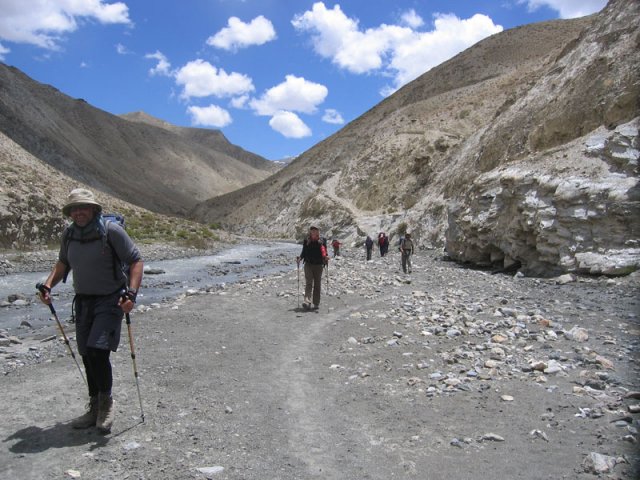You are close to book your trek and it is easy to forgot the most important issue. I am not talking about specific equipment or checking your flight details all over again, but actually to look after yourself while you are trekking at high altitude.
It is hard to know exactly what you should look out for when you are surfing the net to find your dream trek. There are many travel agents trying to seduce you with selling arguments like, ”best price”, ”most experienced guides” or ”we know this mountain better than anybody else”. Maybe they are the most experienced, but for you to know what you should look for, you must ask them about how their acclimatization schedule is like.
Tips that you should know before talking to a travel agent.
• Altitude above 3000 meters (10000 feet) is usually defined high altitude. You must not race up the hills. Do a nice and slow ascent to give your body the best chance to adapt to higher altitude.
• Your sleeping elevation should not increase more than 300-400 meters daily. It is fine to get acclimatized a little bit higher than 400 meters during the day, BUT you must get back down lower to sleep. Every second or third day you should sleep at the same elevation as your prior night.
• A good rule of thumb, listen to your body. Light headache is okay, but developing severe headache and/or you feeling fatigue, weakness, nausea, vomiting or sleeping problems is bad. These are the ways your body is ringing the alarm bells. Trek lower if you are feeling worse or at least do NOT ascent.
It might be fatal to neglect these warning signs, so please be cautious and talk to your guide and friends if you feeling strange or sick.
What you can do to prevent the risk of getting AMS (Acute Mountain Sickness):
• Make sure you are in a good physical condition before you are going on your trip.
• Avoid alcohol, sleeping pills and narcotic painkillers. These drugs are preventing you from breathing well at higher altitude.
• Dress warmly in cold weather. Don’t let your body get chilled.
• DRINK A LOT OF WATER. At least 3 liters per day.
• Don’t feel like not telling your guide if you have problems. You might feel that you are the only one in the group with heavy breathing. Everyone in your group look strong and you have a severe headache. You might feel a shame or stupid because of that. Should you bather to tell your guide? Simply YOU MUST tell your guide and he or she should take action to help you right there and then.
These tips are the first steps to take to have a fun and enjoyable trek.
Good luck!
Michael
Om bloggaren:
Michael Zettergren bloggar om det du behöver veta för att få en säker och rolig vistelse i naturen, föreläser gärna och är grundare till äventyrsresebolaget Adventure Lovers.
About:
Michael Zettergren is blogging about everything you need to know to make your experiences in the mountains to pleasant and memorable trips. I’m doing presentations and are the founder and owner to the outfitter Adventure Lovers.

